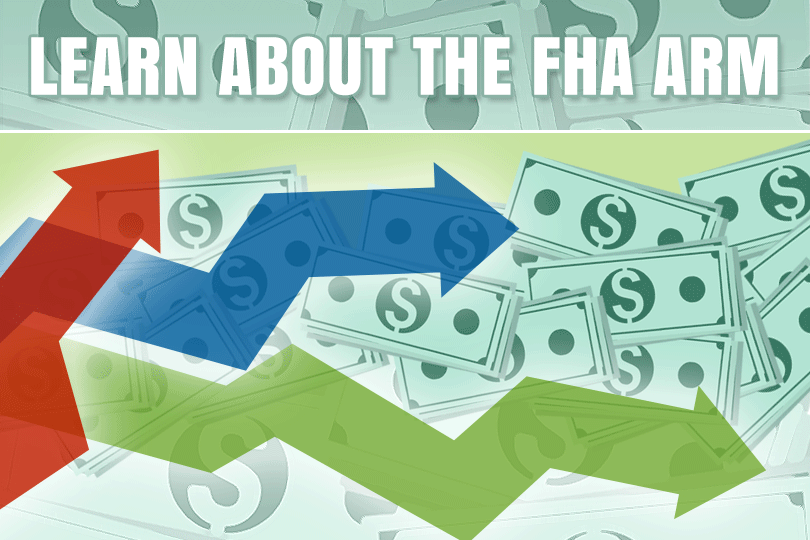How FHA Adjustable Rate Mortgages Work

The FHA and HUD official sites remind borrowers that an FHA ARM may be, “a good option to consider if you plan to own your home for only a few years; you expect an increase in future earnings; or, the prevailing interest rate for a fixed rate mortgage is too high.”
In the 2023 housing market, many borrowers find the last reason more compelling than in years past. But how do FHA ARM loans work?
How FHA ARMs Work
As described on HUD.gov, an FHA ARM loan has four parts:
- The index
- A margin
- The interest rate cap structure
- The initial interest rate period
As mentioned on HUD.gov, “When the initial interest rate period has expired, the new interest rate is calculated by adding a margin to the index.”
How Long Does the Introductory Rate Last?
Your introductory rate may last one year or as long as 10 years. You and your lender will negotiate that intro rate and its duration. Longer intro rates can be an advantage to the borrower, especially if you plan to stay in the home a long time.
What Is a Margin?
Your participating FHA lender will let you know what the margin is at loan application time. Margins are not standardized and may vary from lender to lender. Some readers at this stage want to know exactly what a margin is. The Consumer Financial Protection Bureau says:
“The margin is the number of percentage points added to the index by the mortgage lender to set your interest rate on an adjustable-rate mortgage (ARM) after the initial rate period ends.” You and the lender will agree to the margin and include it in your loan paperwork.
As interest rates change over time your ARM loan may be adjusted accordingly based on the adjustment schedule you and the lender agree to; that schedule will likely include an annual rate change. To protect the borrower against very large interest rate increases, there is a cap on how much the rate can go up on an FHA ARM loan in a year and a cap on how much it may increase over the lifetime of the loan.
Things to Know About FHA ARM Loans
1-year ARMs and 3-year ARMs may increase “by one percentage point annually after the initial fixed interest rate period, and five percentage points over the life of the Mortgage” according to HUD.gov.
5-year ARMs may increase by one percentage point annually, and five percentage points over the term of the mortgage, OR it may go up by two percentage points per year and six points over the life of loan.
HUD.gov says 7- and 10-year ARMs “may only increase by two percentage points annually after the initial fixed interest rate period” with a six percentage point cap over the term of the loan.
------------------------------
RELATED VIDEOS:
The ARM is an FHA Adjustable Rate Mortgage
A Few Tips About Your Fixed Rate Mortgage
Monthly Payments Establish Good Credit

Do you know what's on your credit report?
Learn what your score means.







